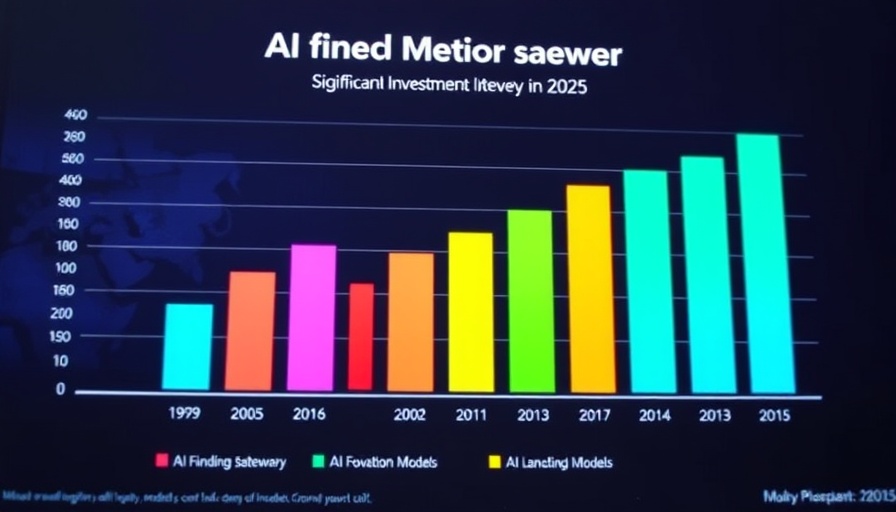
AI Takes Center Stage in Startup Funding
As we stride further into 2025, one trend has begun to dominate the realm of startup funding—artificial intelligence (AI). With the rise of AI, it seems almost impossible to secure significant funding rounds without incorporating AI technologies into a business model. According to recent findings, of the 50 best-funded startups tracked, only three ventured beyond AI and automation, with majority commanding valuations reflective of their innovative potentials.
The most notable showcase of this shift is the record-breaking $40 billion raised by OpenAI, marking the largest private funding round in history. This monumental investment has sparked a domino effect in the funding ecosystem, with competitors striking big on AI developments. For instance, Scale AI attracted $14.3 billion from Meta, which not only illustrates the growing buzz around data-centric AI but also signifies a strategic push towards dominance in AI inputs and technologies.
The New Players on the Block
Among the AI-focused startups making waves is Figure, a humanoid robotics company supported by tech giants Microsoft and OpenAI. With a valuation soaring above $39 billion on merely $1 billion raised, it sits on the pinnacle of funding power with an impressive valuation-to-funding ratio of 39×. This demonstrates how innovative products and substantial corporate backing significantly enhance financial prospects in the AI sector. Other noteworthy entrants include Anthropic and xAI, both demonstrating that strategic positioning in AI is crucial for attracting investments.
Breaking Down Funding Trends
In examining the funding landscape, one might find emerging patterns that indicate a clustering of investments around specific events and milestones. For instance, substantial funding spikes occurred following major announcements from companies like OpenAI and Meta. Additionally, geographic concentration is evident, with the Bay Area accounting for nearly 70% of all VC investments in the first quarter alone. This pattern confirms that innovation often emanates from specific hubs, creating a feedback loop where significant funding attracts further investment.
Why AI and Automation? The Bigger Picture
The compulsive focus on AI signifies a broader evolution not only in funding but also in developments across industries. Traditional sectors are increasingly strapping in AI technologies to innovate processes and enhance efficiency. Businesses that adapt to this technological shift benefit not only from enhanced operational capabilities but also from increased market value. Moreover, AI-driven advancements can help organizations optimize their marketing strategies up to a larger volume of consumer engagement, thus solidifying their competitive edge in the market.
Predicting the Future: What Lies Ahead
With the current trajectory of AI investments, the future seems promising for startups willing to integrate AI into their models. Demand for AI capabilities in various sectors, from healthcare to entertainment, is likely to spur a wave of entrepreneurial ventures. Companies should prepare for a battleground where technological superiority and innovation will greatly dictate financial success.
As we watch these changes unfold, companies must recognize the importance of flexibility and adaptability in leveraging new technologies. The result may pave the way for not only competitive advantages but also opportunities for meaningful contributions to society.
 Add Row
Add Row  Add
Add 




Write A Comment